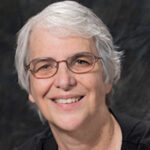 A survey released Tuesday found that more than half of large cities are coordinating after-school programs for youth – a new development that can help provide access to quality programming for all students, according to the researchers.
A survey released Tuesday found that more than half of large cities are coordinating after-school programs for youth – a new development that can help provide access to quality programming for all students, according to the researchers.
“Historically the after-school field has been decentralized and uncoordinated, with different types of programs – and the government agencies and private groups that fund them – operating in isolation from one another,” according to the report on the survey. “The result is often a lack of access to quality programs in U.S. cities, particularly for those young people most in need.”
After-school programs are seen as a way to expand learning beyond the traditional school day, providing academic support and enriching experiences, particularly for students from low-income families who may have limited access to hands-on learning opportunities.
“We were surprised at how many cities had coordination and, at the same time, how few were doing it without data (on participating students) at a time when data in education is so important,” said Ivan Charner of FHI 360, a global nonprofit research group based in Durham, N.C., which conducted the survey.
The survey, held in fall 2012, involved 129 cities, selected randomly, that had a population of 100,000 or larger. Fifteen cities were in California, but the researchers offered anonymity to participants so the names of the cities were not released.
Altogether, 59 percent of respondents reported that they have implemented strategies to coordinate after-school programs in their cities. Of those, 88 percent said they had developed and adopted quality standards, but only a third said they had a common data system to track children participating in the programs. The survey asked about coordination efforts during the past five years, which coincided with the recession and likely explains the dearth of data systems, according to Charner.
“It’s relatively easy to put out standards,” he said, “but data systems cost money.”
The Wallace Foundation, which has supported local efforts to formally coordinate and evaluate such programs, financed the survey and subsequent report.
To get more reports like this one, click here to sign up for EdSource’s no-cost daily email on latest developments in education.















Comments
Comments Policy
We welcome your comments. All comments are moderated for civility, relevance and other considerations. Click here for EdSource's Comments Policy.